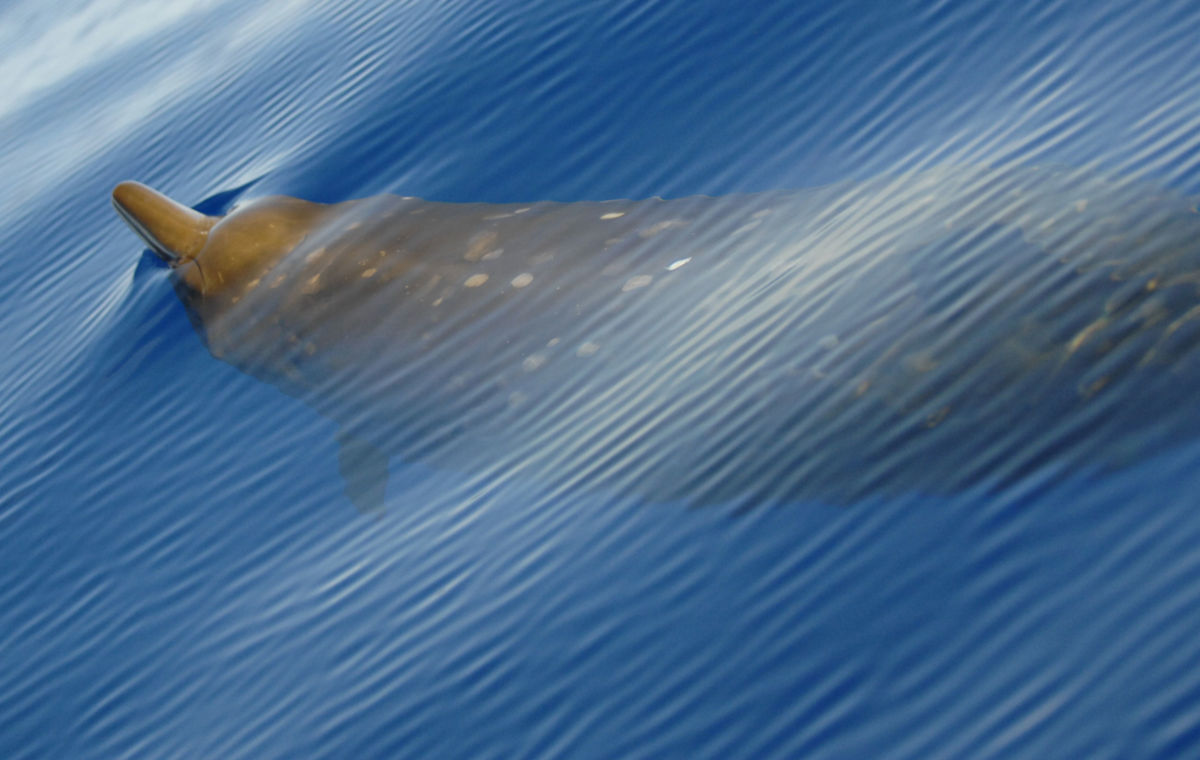Support justice-driven, accurate and transparent news — make a quick donation to Truthout today!
While scientists have already linked naval sonar with mass strandings of some whales, like beaked whales, they haven’t understood exactly what the cause was – until now. Turns out, it’s literally scaring them to death.
Beaked whales are among the deepest diving marine mammals on earth, with Cuvier’s beaked whales hitting some of the deepest depths – going nearly 10,000 feet below the surface. Their bodies have adapted to allow them to go so deep to forage; their heartrate slows, blood flow is restricted and oxygen is conserved.
Oddly enough, scientists have found that stranded whales have nitrogen bubbles in their tissues, which is a telltale sign of compression sickness, otherwise known as “the bends.” It’s a painful condition often associated with scuba divers who rise to the surface too quickly, so it’s strange that whales would be suffering from it.
However, in a new study just published in the journal Proceedings of the Royal Society B, scientists have found that naval sonar in certain frequencies is scaring them so badly, or inducing a “flight or fight response” that their fear alters their diving behavior and quickens their heartrate, which in turn gives them the bends.
“In the presence of sonar they are stressed and swim vigorously away from the sound source, changing their diving pattern,” lead author Yara Bernaldo de Quiros, a researcher at the Institute of Animal Health at the University of Las Palmas de Gran Canaria, Spain, told AFP.
“The stress response, in other words, overrides the diving response, which makes the animals accumulate nitrogen,” she added. “It’s like an adrenalin shot.”
These mass stranding events we see now were infrequent before the 1960s, but increased after the development of naval mid-frequency active sonar (MFAS). It was developed in the 1950s to detect submarines, but didn’t start causing problems for beaked whales until the frequencies used were lowered. In the aftermath, 121 beaked whale mass strandings were reported around the world between 1960 and 2004, while the number of species involved also grew.
One of the worst incidences took place in 2002, with 14 beaked whales stranding themselves in 36-hours in the Canary Islands during a NATO naval exercise. Outwardly, they appeared fine, but internally, 10 of them showed signs of decompression sickness.
The study notes that while the European Parliament urged member states to adopt a moratorium on the use of this sonar until a further assessment could be completed, it was voluntary, and Spain was the only one to do it, and only around the Canary Islands in 2004. Spain’s action, however, had positive impact and no further strandings of this nature have taken place since then.
Unfortunately, this sonar is still something that’s used today by the U.S. and other Nato members, but the study’s authors hope to see a moratorium on this sonar in areas where related strandings continue, in addition to further research about how it’s impacting beaked whales and other marine life.
A terrifying moment. We appeal for your support.
In the last weeks, we have witnessed an authoritarian assault on communities in Minnesota and across the nation.
The need for truthful, grassroots reporting is urgent at this cataclysmic historical moment. Yet, Trump-aligned billionaires and other allies have taken over many legacy media outlets — the culmination of a decades-long campaign to place control of the narrative into the hands of the political right.
We refuse to let Trump’s blatant propaganda machine go unchecked. Untethered to corporate ownership or advertisers, Truthout remains fearless in our reporting and our determination to use journalism as a tool for justice.
But we need your help just to fund our basic expenses. Over 80 percent of Truthout’s funding comes from small individual donations from our community of readers, and over a third of our total budget is supported by recurring monthly donors.
Truthout’s fundraiser ended last night, and we fell just short of our goal. But your support still matters immensely. Whether you can make a small monthly donation or a larger one-time gift, Truthout only works with your help.
